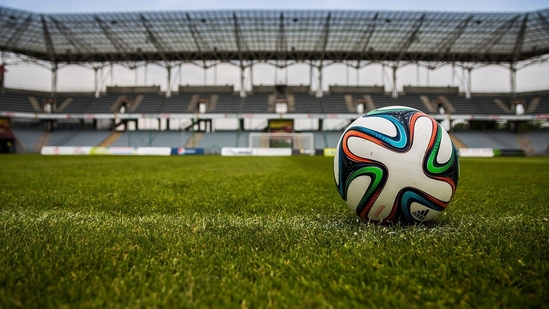British football hooligans are on the offensive once again

Arrests at stadiums have been increasing
THE CONTEST between Arsenal and West Ham on February 22nd will be fierce. Probably not on the pitch: Arsenal is the strong favourite to win the fixture. The Gunners are second in the Premier League, while the Hammers are languishing in 16th. Instead, the battle will be in the stadium grounds. When the teams met in November, fans could be seen brawling in the stands. Both clubs rank in the top five in terms of supporter arrests and banning orders, with 85 and 103 respectively last season. The “English disease”, as football hooliganism is known, is flaring up again.

As prime minister, Margaret Thatcher was troubled by football thuggery. She considered it a threat to British society as grave as the IRA and miners’ strikes. In 1985, 39 people died at the European Cup Final as Juventus fans, fleeing an assault from Liverpool supporters, were crushed when a wall collapsed. English clubs were subsequently prohibited from European club competitions for five years.
Fans focused their violent energies on local games instead. During the 1987-88 season, there were an estimated 6,150 fan arrests across the top four divisions. In a crackdown dubbed “Operation Fulltime”, the police arrested club ringleaders.
The British government passed various acts to stamp out hooliganism in the 1980s and 1990s: measures included a stronger police presence, more surveillance, better-designed stadiums with seating and bans for the worst offenders. Fans were prohibited from drinking alcohol anywhere with a view of the pitch. Clubs also increased ticket prices. According to History & Policy, an academic group, ticket prices for the Premier League went up by more than 300% between 1989 and 1999.
These measures helped. By the 2000-01 season, the number of football-related arrests had fallen to 4,200 across the top four divisions as well as domestic tournaments and international fixtures (see chart). Arrests continued to trend downwards for the next 20 years. In 2018-19, the last full season before the pandemic, there were 1,400 arrests.
But since then, hooliganism has surged—though it is some way off its high point. In 2021-22 there were 2,200 arrests. (Many were apprehended as a result of the European Championship final at Wembley, when more than 2,000 people forced their way into the stadium without tickets.) In subsequent seasons, arrests increased to almost 2,300, then 2,600. Police reports mention violent disorder, hate crime and the throwing of missiles.
This is not a uniquely English problem, despite the moniker. Hundreds of French fans clashed in May. At the end of 2024 fights between rival clubs in Germany left 79 injured, including ten police officers. But detailed data in Britain provide the clearest picture of a problem that is worsening once more.
Football hooliganism is a heady brew of tribalism and testosterone; there is a “historical alignment with working-class masculinity”, according to Paul Davis, a sports sociologist at the University of Sunderland. In “Among the Thugs”, a book published in 1990, Bill Buford, a journalist, sought to understand why “young males riot every Saturday”. A straight answer eluded him—he found that it was often gainfully employed fans that enjoyed the fighting—but he likened it to other rebellious outlets such as drink and drugs. “Violence is their antisocial kick, their mind-altering experience.”
In fact, drugs have always been part of the problem, but now they are widespread. After America, Britain has the highest rate of cocaine use. In 2021 a study of 1,500 fans in Britain found that 30% had witnessed cocaine use in stadiums. New regulations were introduced in November 2022, stating that any fans caught with Class A drugs (including cocaine, ecstasy and heroin) could be banned for up to ten years and receive a criminal conviction. Yet arrests continued to rise. Compared with the same November-May period in the 2022-23 season, arrests for drug-related offences in 2023-24 increased by nearly 60%.
In response, police officers are bringing sniffer dogs into grounds and can administer drug tests on arrest. Clubs are also increasing awareness of the health risks of combining cocaine and alcohol (such as a higher chance of heart attacks).
Stadiums could be even stricter, particularly on alcohol consumption: sports venues in France, for instance, have to get a legal exemption to sell it. Research is also ongoing as to the impact of kick-off times on individuals’ propensity to kick off. In 2021 researchers studying the relationship between domestic violence, alcohol and football fixtures argued that weekday matches and later kick-offs would help mitigate abusive behaviour, as “Early games lead perpetrators to start drinking alcohol earlier and continue to do so through the afternoon and evening.”
Yet for miscreants, the goal is to feel the thrill of violence. Mr Buford observed that, for men who had never been to war, football bust-ups offered something akin to combat. “They talk about it with the pride of the privileged, of those who have had, seen, felt, been through something that other people have not,” he wrote. His subjects reflected on the pleasure of nastiness, “about the crack, the buzz and the fix. They talk about having to have it, of being unable to forget it when they do, of not wanting to forget it—ever.” The majority of football fans, however, would prefer it if hooliganism were a distant memory.
For more on the latest books, films, TV shows, albums and controversies, sign up to Plot Twist, our weekly subscriber-only newsletter






